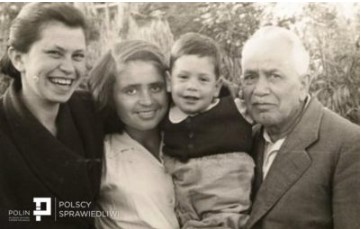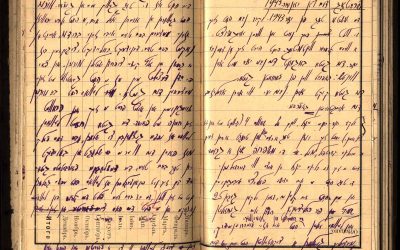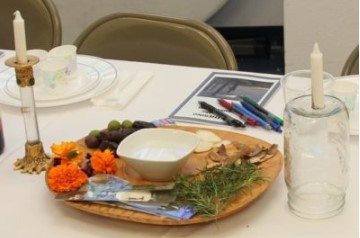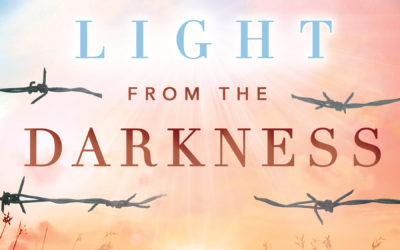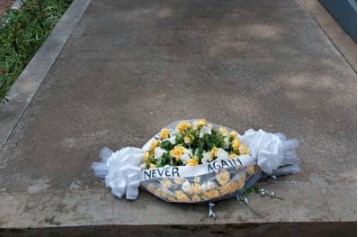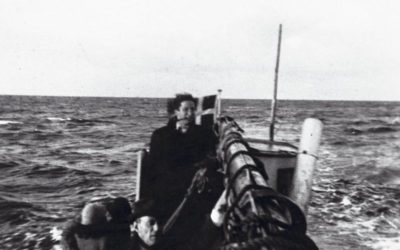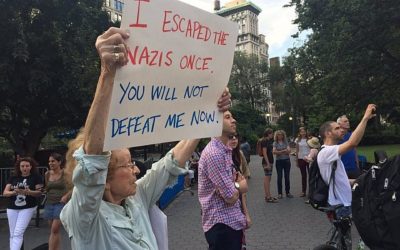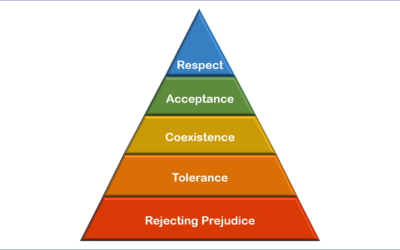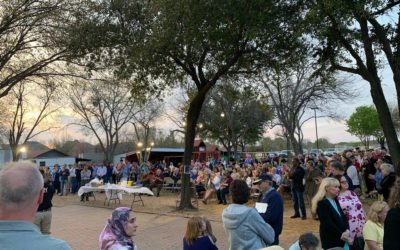Our Blog
Americans, the Holocaust is not about you
How do we tell the story of the Holocaust? Here in America, the Holocaust is taught from a distinctly American point of view. The story of the Holocaust typically begins in 1938, with a sudden explosion of hatred that penetrates the American isolationism. The story ends in 1945, when brave American soldiers throw open the gates of the concentration camps. “You are free,” they cry, and, the story implies, everyone goes home again. [Redirects to the Times of Israel]
Building communities through the stories of individuals
Storytelling is an ancient art that gives voice to our values and our history. Through our stories, we build our communities. But we can only appreciate the depth of these communities when we tell the stories of the individual people who make up the community. [Redirects to the Times of Israel.]
A new ritual for Yom HaShoah as the fragile window closes
We have reached a tipping point where the Holocaust is changing from an immediate, traumatic memory to community history. At this transition, we have an obligation to frame how we as a Jewish community will commemorate this event for future generations. If we do not create some sort of ritual observance, then I fear that the Holocaust will fade into history, its lessons lost. I brought this idea to a meeting of Jewish educators… [Redirects to the Times of Israel.]
Americans, the Holocaust is not about you
How do we tell the story of the Holocaust? Here in America, the Holocaust is taught from a distinctly American point of view. The story of the Holocaust typically begins in 1938, with a sudden explosion of hatred that penetrates the American isolationism. The story ends in 1945, when brave American soldiers throw open the gates of the concentration camps. “You are free,” they cry, and, the story implies, everyone goes home again. [Redirects to the Times of Israel]
Building communities through the stories of individuals
Storytelling is an ancient art that gives voice to our values and our history. Through our stories, we build our communities. But we can only appreciate the depth of these communities when we tell the stories of the individual people who make up the community. [Redirects to the Times of Israel.]
A new ritual for Yom HaShoah as the fragile window closes
We have reached a tipping point where the Holocaust is changing from an immediate, traumatic memory to community history. At this transition, we have an obligation to frame how we as a Jewish community will commemorate this event for future generations. If we do not create some sort of ritual observance, then I fear that the Holocaust will fade into history, its lessons lost. I brought this idea to a meeting of Jewish educators… [Redirects to the Times of Israel.]
When you meet a Nazi at a gas station
“I’ve got a Nazi Iron Cross tattooed on my chest.”
We were chatting with a stranger across an unmanned gas pump, along an isolated road in rural east Texas. He had asked us, conversationally, what church we attended. This is a common conversation starter in this part of the world and did not surprise us. We’re Jewish so we attend synagogue, we replied, equally casually. That was when he told us that he had a swastika on his chest. He said it matter-of-factly, but there was a challenge in his eyes.
[Redirects to the Times of Israel]
How Should We Memorialize the Holocaust?
The Holocaust is in danger of being remembered as just another historical atrocity inflicted on the Jewish people. Traditionally, Yom HaShoah—Holocaust Remembrance Day—has been a time to listen to survivors. Soon, we will no longer be able to sit and listen to them...
Does “Never Again” still have meaning?
Never again is the anguished cry of Holocaust remembrance, seeking to find a meaning from the suffering. But can we still say never again when genocides have happened again, and again, and again? Does the phrase still have meaning? [Redirects to the Times of Israel.]
“There is no Jewish Question”
In mid-1942, the prime minister of Finland, Johann Rangell, was asked by SS chief Heinrich Himmler about the “Jewish Question.” Rangell responded that there was no Jewish Question in Finland, only respected Jewish citizens. [Redirects to the Times of Israel.]
Why we should compare current events to the Holocaust
As a well-known aphorism tells us, a spurious comparison to the Holocaust devolves an argument to a standstill. But a well-placed comparison to the Holocaust can be a call-to-action, can help to highlight bias and create change. [Redirects to the Times of Israel]
Coexist is not enough
Our holy books do not tell us to “tolerate the stranger.” They tell us to love them. [Redirects to the Times of Israel]
Hate has no community
We cannot allow terrorists to lay claim to the values of our communities. Once again, a terrorist has come into a place of peace and used community as a cover to commit an act of evil. In this case, he claimed to be working for the advancement of the white, Christian community. [Redirects to the Times of Israel]
Subscribe for More Great Articles!
Join our mailing list to get notified about new blogs and upcoming events.

